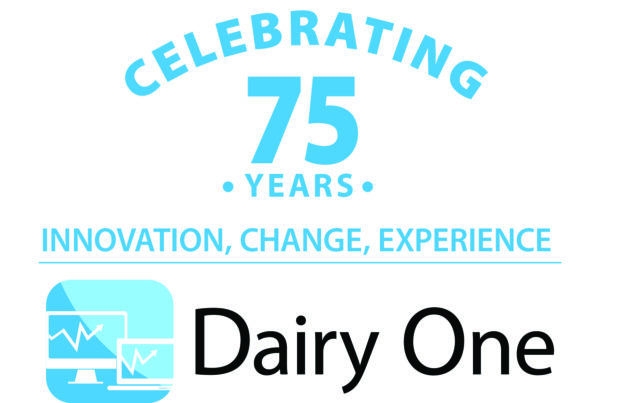- Vilsack says consensus needed on potential FMMO reforms
- Danone extending Northeast organic contracts until February 2023
- Canada issues dairy threat over BBB Act electric car provision
- Amp Americas expands Idaho, Indiana dairy RNG assets
- High Plains Ponderosa, Shell to create RNG facility in Kansas
- Saputo Dairy adding solar power to California plant
- Fluid milk processor board nominees sought
- North Carolina offers dairy assistance payments
- USDA to conduct study about agricultural producers
- And in other news …
Vilsack: Consensus needed on potential FMMO reforms
Participating in tour stops in Wisconsin to promote the Biden administration’s infrastructure initiatives and Build Back Better Act agenda, U.S. Ag Secretary Tom Vilsack said a consensus is needed within the dairy industry before moving forward with potential hearings on Federal Milk Marketing Order (FMMO) reforms.
The tour included stops in Bloomer, in western Wisconsin, and at the Duane and Tina Hinchley farm near Cambridge. In addition to offering an update on newly released Dairy Margin Coverage (DMC) program changes, Vilsack stressed the need for dairy groups to work together and push for a consensus on milk pricing policies.
A bill introduced in the U.S. Senate, Dec. 1, would mandate Vilsack to take steps to initiate national hearings on possible FMMO reforms within six months of its approval. (Read: Senate bill would mandate FMMO hearing.)
The Hinchleys, who hosted the tour stop on their Dane County farm, are members of the Wisconsin Farmers Union, an organization active in the “Dairy Together” movement that would establish growth management strategies to stabilize production and prices outlined in the Dairy Revitalization Plan.
Danone extending Northeast organic contracts until February 2023
State officials and leaders of regional organic organizations said Danone North America, owner of Horizon Organic, has agreed to extend milk purchase contracts for Northeast organic dairies for an additional six months.
Last August, Horizon notified 89 dairy producers in four states that their milk supply contracts would not be renewed beyond August 2022. That prompted protests from organic dairy advocates and the establishment of task forces to seek alternative milk marketing options for the affected producers. Of the 89 organic dairy farms, 45 are located in New York, 28 in Vermont, 14 in Maine and two in New Hampshire. (Read: Northeast officials seeking options for organic producers in the Progressive Dairy Weekly Digest posted on Sept. 21, 2021.)
According to a letter from Chris Adamo, Danone North America’s vice president of government relations, policy and partnerships, the company’s four-part Northeast organic dairy transition plan will extend milk purchase contracts to affected producers until Feb. 28, 2023; provide transition payments on milk purchased from these producers during the last six months of the agreements; provide access (at no cost to the farmer) to farm financial consultants; and explore co-investment solutions to address challenges related to the Northeast organic dairy infrastructure.
Canada issues dairy threat over BBB Act electric car provision
In response to a proposed tax credit for U.S.-produced electric vehicles contained in the Build Back Better (BBB) Act, Canadian government officials have sent a letter to leaders of the U.S. Senate, threatening retaliation should the credit go through. According to the letter, the tax credit is equivalent to a 34% tariff on Canadian-assembled electric vehicles. The letter said retaliation could include launching a dispute under the U.S.-Mexico-Canada Agreement (USMCA), applying tariffs and suspending portions of USMCA, including dairy tariff-rate quotas.
It should be noted the BBB Act was headed for an overhaul when Sen. Joe Manchin (D-West Virginia) withdrew his support on Dec. 19. Thanks to the Senate's 50-50 party split, Manchin's withdrawal appears to end the Senate's plans to advance a modified version of the House-passed Build Back Better Act before the end of the year, according to Michael Best Strategies.
Amp Americas expands Idaho, Indiana dairy RNG assets
Amp Americas II LLC, a company with projects that convert dairy waste into renewable natural gas (RNG), has tripled the size of its carbon-negative fuels portfolio with the purchase of assets in Indiana and Idaho.
In Indiana, Amp Americas consolidated a dairy RNG project with long-time partner Generate Capital. That project consists of five digesters and two gas processing plants, capturing methane from approximately 1.5 million gallons per day of dairy waste generated by 36,000 cows across nine dairies. The methane is purified and compressed into carbon-negative renewable transportation fuel.
Amp Americas also acquired a group of RNG project assets in Idaho from Vitol Green Holdings LLC, an affiliate of Vitol. The Idaho projects consist of three digesters, two gas processing plants and one electric power generation plant that capture methane from over 940,000 gallons of dairy waste per day generated by 36,000 cows across three dairies. The methane is processed for transportation fuel and power.
According to the company, it now operates seven of the largest dairy biogas-to-transportation fuel projects in the U.S., producing fuel from dairy waste generated by over 100,000 cows across 20 dairies.
High Plains Ponderosa, Shell to create RNG facility in Kansas
Royal Dutch Shell, headquartered in the Netherlands, and High Plains Ponderosa, Plains, Kansas, are working together to construct an integrated dairy-manure-to-RNG facility in Kansas.
Once operational, High Plains-Shell Downstream Galloway is expected to produce more than 500,000 metric million British thermal units (MMBtu) a year of negative carbon intensity RNG using cow manure from the High Plains Ponderosa dairy. For additional information, read the National Milk Producers’ (NMPF) Farmer Focus here.
Saputo Dairy adding solar power to California plant
Hyperlight Energy is collaborating with Saputo Dairy USA to construct a concentrated solar project in California.
The Saputo facility in Tulare, Calfiornia, will use Hyperlight’s concentrated solar power technology, Hylux, to provide thermal heat for factory operations. Replacing natural gas, the thermal energy will assist in Saputo’s “clean-in-place” system, resulting in an estimated annual reduction of 500 metric tons of cardon dioxide emissions. The California Energy Commission provided a $5.4 million grant to support the project, which is scheduled for completion in late 2022.
Fluid milk processor board nominees sought
The USDA is seeking nominations for candidates to serve on the National Fluid Milk Processor Promotion Board.
Nominations are being accepted in four geographic regions and two at-large positions: Region 1 (Connecticut, Maine, Massachusetts, New Hampshire, Rhode Island and Vermont), Region 4 (Georgia, North Carolina and South Carolina), Region 7 (Michigan, Minnesota, North Dakota, South Dakota and Wisconsin) and Region 10 (Texas).
Nominees for the regional positions must be active owners or employees of a fluid milk processor. One of the at-large positions may be an active owner or employee of a fluid milk processor or a member of the general public. The other at-large position must be a member of the general public.
Nomination deadline is Jan. 14, 2022. From the nominees, six individuals will be appointed to succeed members whose terms expire on June 30, 2022. Newly appointed members will serve three-year terms from July 1, 2022, through June 30, 2025.
Nomination forms and information are available on the USDA Agricultural Marketing Service (AMS) Fluid Milk Processor Promotion Board webpage.
North Carolina offers dairy assistance payments
The North Carolina Department of Agriculture and Consumer Services (NCDA&CS) has opened the application period for the first phase of its Swine and Dairy Assistance program. Sourced from federal COVID-19 relief funds, the $30 million program will assist dairy producers for losses incurred from termination of contracts or ceased milk production due to the pandemic.
Under the first phase of the program, eligible applicants will receive a one-time, maximum assistance payment of $31,500 to cover outstanding bills. Phase 2 will focus on infrastructure modifications to barns and/or lagoons; more details will be released in early February.
The grant application and required forms can be downloaded from the NCDA&CS website. The deadline to apply is June 30, 2023, but funds are limited.
USDA to conduct study about agricultural producers
The USDA’s National Agricultural Statistics Service (NASS) is conducting a voluntary 2021 Farm Producer Study to improve knowledge and understanding of agricultural producers and help the USDA improve services. A brief questionnaire is being mailed to approximately 75,000 U.S. agricultural producers across the country. Taking no more than 10 minutes to complete, the questionnaire asks participants for demographic and basic farm information. Producers can respond securely online or by mail by Jan. 18, 2022.
All information reported to NASS is kept confidential, but general study results will be posted on the NASS website as a research report.
And in other news …
-
Heads of the USDA and Department of Transportation (DOT) urged the world’s leading ocean carriers to reform their practices to provide better service to U.S. agricultural exporters. A letter specifically referenced the need to expand use of available West Coast terminal capacity, restore reciprocal treatment of imports and exports, and improve service. According to Secretary of Transportation Pete Buttigieg and Secretary of Agriculture Tom Vilsack, ocean carriers have made fewer containers available for U.S. agricultural commodities, repeatedly changed return dates and charged unfair fees as the ocean carriers short-circuited the usual pathways and rushed containers back to be exported empty. NMPF and the U.S. Dairy Export Council (USDEC), through the Export Supply Chain Working Group, have urged a greater focus on the shipping supply chain crisis, estimating it has cost the U.S. dairy industry an estimated $1.3 billion over the first three quarters of 2021.
- Although it has limited applications for farmers, the Department of Homeland Security (DHS) announced it will exercise discretion for Form I-9 employment eligibility verification due to the COVID-19 pandemic. Employers with employees working remotely will not be required to review the employee’s identity and employment authorization documents in the employee’s physical presence. The DHS guidance was set to expire Dec. 31, 2021, but has now been extended until April 30, 2022. View the compliance requirements here.
-
If confirmed as commissioner of the U.S. Food and Drug Administration (FDA), Dr. Robert Califf said he would make enforcement of food labeling standards – including dairy – a priority. In response to a question from U.S. Sen. Tammy Baldwin (D-Wisconsin) during a Senate confirmation hearing, Califf said there is “almost nothing more fundamental about safety than people understanding exactly what they’re ingesting, so I am committed to making this a priority if I am confirmed.” The National Milk Producers Federation has been critical with the lack of FDA enforcement of rules against mislabeled plant-based dairy imitators for four decades. A confirmation vote is expected in January.

-
Dave Natzke
- Editor
- Progressive Dairy
- Email Dave Natzke










